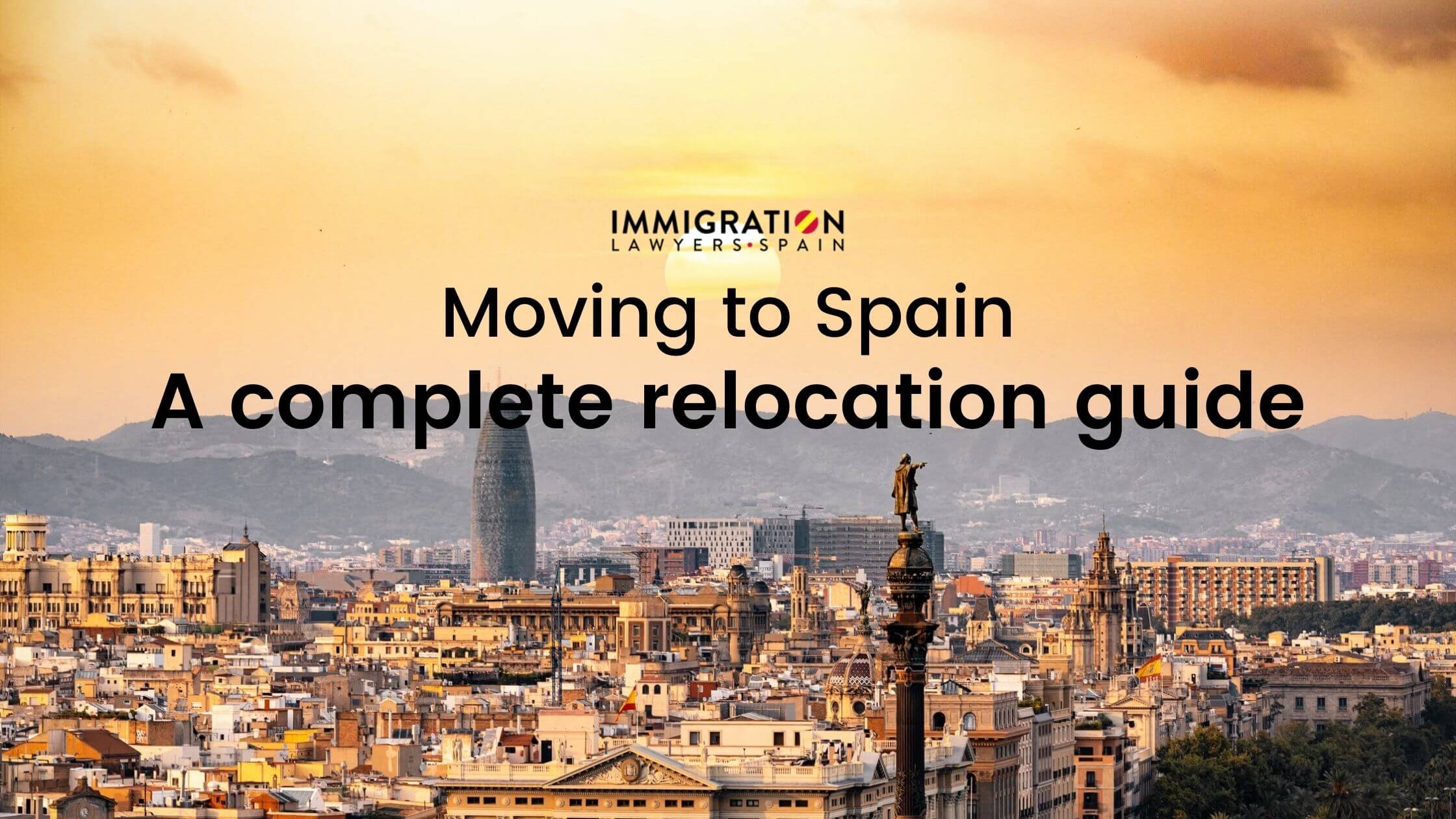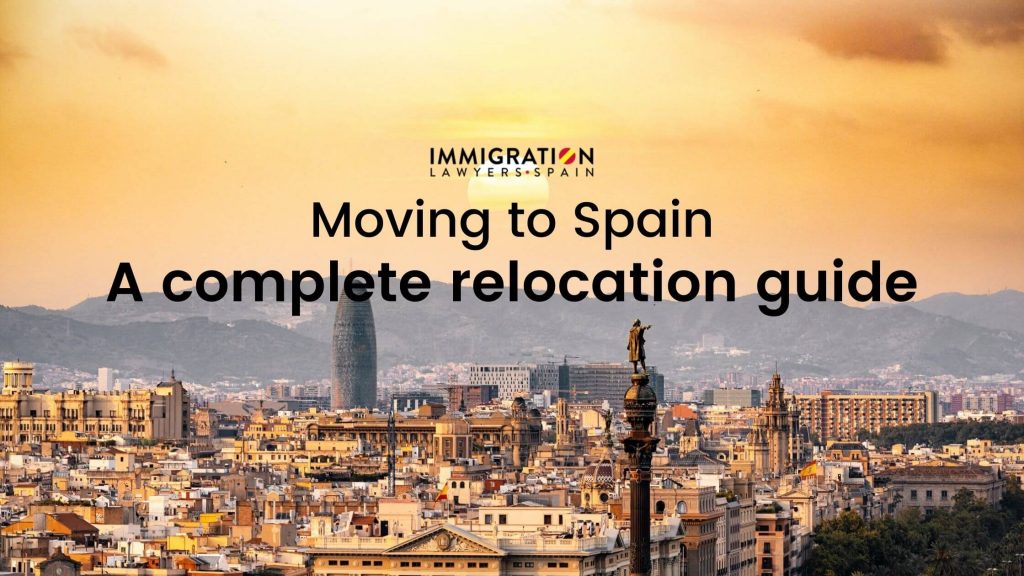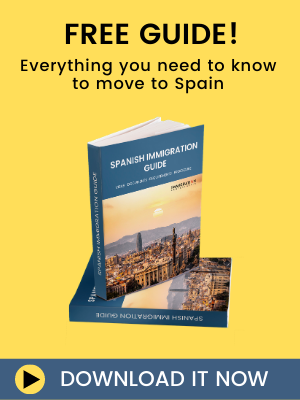
The complete relocation guide you were looking for! If you want to learn how to move to Spain (no matter your country), then keep on reading. You are about to discover how to do it and some important considerations that are crucial for a successful process.
Content
ToggleIs moving to Spain a good idea?
There is no doubt why Spain has been in the top 5 countries for expats during the past years.
Of course, we must ask ourselves why. And even though it is true that the incentives will be different from one person to another, there is a common theme no one can deny.
In this article we talked about the top 10 things that will inevitably make you love Spain.
But for now, here are some of the main reasons why Spain could (and should) be your preferred destination when choosing a country to start a new life:
- Diverse Landscapes and Numerous Cities: From the sunny beaches of the south to the mountainous terrains in the north, Spain offers a variety of climates and sceneries. Cities like Barcelona, Madrid, and Valencia each provide unique cultural experiences and lifestyles.
Rich Gastronomy: Spanish cuisine is renowned worldwide. Whether it’s savoring tapas, indulging in paella, or enjoying regional specialties, the country’s culinary diversity caters to all tastes.
Balanced Work-Life Culture: Spain emphasizes a harmonious work-life balance. The traditional siesta, ample vacation days, and a focus on family and social life contribute to a relaxed and enjoyable lifestyle.
Ease of Integration: Spaniards are known for their warmth and hospitality. The country’s diverse expatriate communities and a generally welcoming attitude make it easier for newcomers to integrate and feel at home.
The basics you need when moving to Spain
What should you consider when planning to move to Spain?
What’s next is a small checklist we have created to guide you from the very first moment in which you start planning your move.
We have gathered the main aspects that you must consider, especially when it comes to the different legal aspects to be solved.
Knowing each and every one of these points will be crucial before traveling to Spain.
NIE
Your NIE number is one of the first things you must obtain when relocating to Spain.
It is the identification number you will use for nearly everything: to purchase a property, to open a bank account, to set up a business, and even to get your residency card.
This NIE (“Número de Identificación del Extranjero”) is the number that identifies you as a foreigner. It will be granted once, and will be forever with you (never changing).
It is important not to confuse it with the TIE, which is the actual residency card you get when applying for legal residence.
The NIE is just a number, not the physical document you will get later on.
And the NIE is one of the first things you must obtain.
Do you have any questions?
Residency card

One of the most important pillars of your new life in Spain: residency.
Even before planning to move to Spain, you should clearly understand how the Spanish immigration system works, and how to proceed according to your particular case.
And here you will find a quick summary.
Having the legal residency part solved means knowing whether you need to obtain a residence permit or not.
How can you know?
If you are from the European Union and are staying over 3 months in the country, you must apply for the EU registry certificate.
If you are from outside the EU, things are not that simple:
- If you plan to stay less than 90 days in the country, then you must apply for a tourist visa in case your country requires one. You can find the list of countries that actually need one here.
- On the other hand, staying over 3 months in the country as a non-EU citizen means you must first apply for a regular residence permit.
While it is true that under some circumstances you can get residency after entering Spain as a tourist, the general rule says you must start the application procedure before traveling to the country, at the Spanish consulate located in your country of origin.
What is the best residence permit? Here you have several options, and applying for one residency or another depends on your plans and particular situation.
Healthcare
There is just one case in which you won’t need to hire private health insurance in Spain: if you are working for a Spanish company and make contributions to the Social Security (or if you have registered as a self-employed worker, as you will be also contributing to that institution).
For all the remaining scenarios, obtaining health insurance is necessary.
No matter if you apply for a visa as a student or for a long-run residence permit, having the same health coverage and with the same conditions offered by the Spanish Public Healthcare system is essential.
The cost moves around € 50 to € 70, and depends on your situation and family members included. Here you can find all the details and requirements of these insurance contracts.
Nevertheless, if you are a legal resident working in the country you are entitled to free public healthcare assistance; which is deemed as one of the best in the world.
Housing

Should you buy or should you rent?
That is the eternal question.
But in this article, we will try to offer a good rule of thumb.
First of all, you must know that the bureaucratic procedure related to purchasing or renting out is quite complicated.
And that is even more true if you are a foreigner who does not speak the language.
That is why our best piece of advice is to first talk with a specialized lawyer who can be next to you throughout the whole process.
This will save you time and money.
But let’s find an answer to the initial question.
You could have it pretty clear, choose a region and city you really like (because you have traveled before there are really know the area), and purchase.
That is more than ok, there is no restriction on property ownership and if the investment is higher than € 500.000 you can even get residency and be granted the investor residence permit, called golden visa.
Nevertheless, if the path is not crystal clear, perhaps the wisest option would be to rent while you travel and discover the country and the places where you actually see yourself living in the long run.
Even though rental prices are cheaper than comparing with the other big European capitals, cities like Madrid or Barcelona offer much higher prices.
The metropolitan area of Barcelona can be a good alternative, or even other not-so-mainstream cities like Valencia (which the same weather conditions as Barcelona) can become your preferred choice.
Below is an overview of average rental and purchase prices in some of the country’s largest cities:
| City | Average Rent (€/m² per month) | Average Purchase Price (€/m²) |
|---|---|---|
| Barcelona | €22.10 | €4,430 |
| Madrid | €19.80 | €4,514 |
| Valencia | €13.40 | €2,664 |
| Málaga | €12.00 | €3,069 |
| Palma | €18.00 | €4,272 |
| Bilbao | €16.91 | €3,000 |
| Seville | €10.00 | €2,354 |
| Zaragoza | €9.00 | €2,000 |
Taxes
Taxes can come become a real headache for many, especially when they are so different in comparison to your country of origin and you don’t understand them.
Just so you can have a general idea, the most important thing you must consider is that if you spend over 183 days per year in the country you become a tax resident in Spain; and that changes everything.
If you are a tax resident you are going to pay income tax for the incomes you generate all over the world (there are some double-taxation agreements between your country and Spain that avoid the need to pay twice for the same income), at a percentage that ranges from 19% to 47%.
As a foreigner, you must be aware of the Beckham Law, which enables you to pay a flat income tax fee instead of a progressive one. You can learn more about this special tax regime for foreigners here.
On the other hand, capital gains tax captures profits obtained from selling shares or any other similar investment; and does so at a rate ranging from 19 to 23%.
Then there’s also wealth tax and some extra taxes that really depend on your particular situation.
The main upside is that there are lots of exemptions, and by clicking on this link you will access a guide in which you can discover how to optimize and save your Spanish taxes as a foreigner.
Exchanging titles

Finally, it is highly possible that you will need to get some title or document you obtained in your home country exchanged for full legal validity in Spain.
Here are some of the main procedures you will have to formalize (including a link to learn more):
- Getting your high-school diploma recognized in Spain to keep studying or to start working for a company.
- Exchanging your driving license into a valid one.
Each process is different and has its peculiarities. Your country of origin will directly impact how things must be done too, so it is important to fully understand what to do before traveling to Spain (many times you will need to start the procedure from your home country).
Can I move to Spain without a job?
Moving to Spain without a job can make the relocation process much more complicated.
That is, in case you actually want to work in the country.
As we mentioned in the prior section, obtaining a work permit (for which you need a job offer) may be the path to get residency in the country.
Nevertheless, there are other immigration alternatives, and a job is not required in all cases.
For example, the student visa, the non-lucrative visa, or the golden visa are some permits that do not require to find a job in order to be obtained.
The same happens if you obtain the family member of an EU citizen or you get residency through family reunification.
But, of course, if you wish to work in the country for any company, finding a job will be required; and you must do that from your country of origin (as there is where the process starts).
The bottom line is simple.
You can move to Spain without a job. That is for sure.
Nevertheless, you will then need to apply for any residency that does not list it as a requirement.
Other considerations when relocating to Spain
Being such an important move, the are other considerations foreigners should be aware of. From meeting new people to getting to know the Spanish culture, understand the following and your relocation process will be smoother:
Meet new people
Moving to a new country can be daunting, but Spain’s vibrant social culture makes it easy to meet new people. In fact, this will be essential to ensure a successful move, especially from an emotional perspective.
But the country makes it easy: Spaniards are generally friendly and welcoming, especially if you make an effort to speak the language.
Participating in local activities like sports clubs, language exchanges, or community events is a great way to connect with others.
Expats can also find support through international meetups, social media groups, or local associations designed for foreigners.
Cities like Madrid, Barcelona, and Valencia have thriving expat communities that host events and networking opportunities.
Use apps like Meetup or Eventbrite to find events where you will easily be able to meet likeminded foreigners.
Get to know the Spanish culture
Understanding Spanish culture is essential for a smooth transition.
Spain is known for its rich traditions, including lively festivals like La Tomatina, Flamenco music and dance, and its world-famous siestas.
Embrace these traditions to immerse yourself in the Spanish way of life, which will allow you to appreciate much more the land you will call home from now on, and also to better understand its people.
Spanish cuisine is a major cultural highlight.
From tapas and paella to jamón ibérico, exploring local food markets and restaurants is a delicious way to learn about regional diversity.
Additionally, Spaniards value family, relaxed schedules, and a work-life balance, so adapting to a slower, more social lifestyle may take time but is ultimately rewarding.
Taking time to learn about Spanish history, art, and customs will deepen your appreciation of the country and help you form stronger connections with its people. But do not forget about regional languages like Catalan, which will be a great door into even more local communities.
Finally, consider visiting museums, attending local events, or enrolling in cultural classes to enhance your experience.
Moving to Spain from UK
Many British citizens are somewhat confused when it comes to the new process of moving to Spain now that they are no longer part of the European Union.
While it is true that the legal paperwork is not as easy as it used to be, moving to Spain from the UK is still possible.
In fact, one of the main nationalities that we have at our offices are (and were before) UK citizens; and their new situation has not stopped them from relocating to Spain.
What has changed is the mechanism to do so.
Right now, the legal requirements for British nationals are the same as the ones applied to the rest of non-EU nationalities.
There are different options available, but the non-lucrative visa seems to be the go-to option.
This residence permit offers simple requirements (you just need to demonstrate the possession of € 26.000 on your bank account and private health insurance).
Even though it does not allow you to work in the country, it can be the entry door to Spain; as you can modify to work permit after the first year comes to an end.
Remember that for any specific question you may have, or if you need legal assistance from one of our expert lawyers, do not hesitate to contact us below.
Get in touch with our lawyers and let us guide you step by step:






